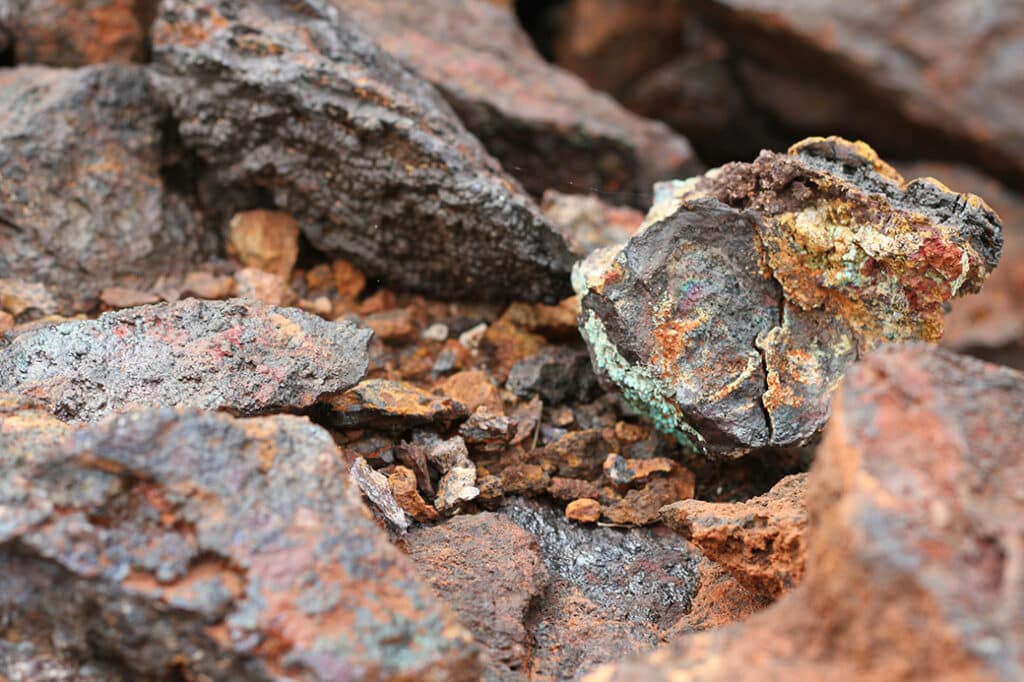
President Trump recently signed an executive order aimed at increasing mineral production within the United States, focusing on minerals such as copper-nickel. Though the order does not specifically target regions, it could impact areas near the Boundary Waters Canoe Area Wilderness (BWCAW), potentially challenging land protections established by the previous administration.
Shifting policies and priorities

In 2017, the Trump administration signed an executive order to increase mineral production in the U.S. The order put a focus on critical minerals such as copper, lithium, and rare earth elements. In response, mining companies continued to pursue leases within the Superior National Forest and areas close to the BWCAW to establish mining for copper-nickel extraction.
Then, in 2023, the Biden administration withdrew 225,504 acres of the SNF from mineral and geothermal leasing, lasting 20 years. This move essentially blocked companies like Twin Metals Minnesota from developing a copper-nickel mining operation near the wilderness. The mine would be built roughly five miles from the boundary of the BWCAW.
The recent executive order builds on actions from Trump’s previous term, aiming to boost domestic mineral production and reduce reliance on foreign minerals. According to the fact sheet from the White House, “The United States is 100% import-reliant on at least 15 critical minerals, and imports of nonfuel mineral commodities make up more than half of U.S. consumption.” The administration also believes the increase in domestic production will strengthen national security and create jobs. Additionally, the goal would be to provide future generations with a reliable and predictable supply of minerals. Critical minerals, such as copper, are used in developing components for systems that support defense, clean energy, and electronics.
Mining interests in Minnesota have responded positively to the recent move. Julie Lucas, Executive Director for Mining Minnesota, told MSN, “We’re very lucky to have what we have in our state, and we’re grateful that the federal government recognizes the opportunities that we do have.” While she’s unsure how the latest order will affect Minnesota, she emphasized, “Our industry doesn’t want shortcuts. We want to protect the environment that we work within.”
Land protections could be reversed
While other forms of mining occur in northern Minnesota, fears grow over the extraction of critical minerals, such as copper-nickel. Copper-nickel has never been commercially mined in Minnesota. Conservation groups argue that toxic chemicals from tailings could pollute the BWCAW and the greater Rainy River Watershed.
Ingrid Lyons, Executive Director for Save the Boundary Waters, told MinnPost, “Under the guise of national security, the Trump Administration has taken its next step toward dismantling vital protections for the Boundary Waters Canoe Area Wilderness and its watershed.” She added that “the administration has thoroughly demonstrated its commitment to sacrificing America’s public lands for corporate gain.”
Going forward, it’s not yet clear how this new order will accelerate U.S. production efforts for critical minerals or how it might affect the land protections put in place by the Biden administration. However, the order permits the Secretaries of Defense and Energy to begin working with private companies to lease government land for mineral production.
More info:
- Immediate Measures to Increase American Mineral Production – The White House
- Fact Sheet: President Donald J. Trump Takes Immediate Action to Increase American Mineral Production – The White House
- Trump’s critical minerals order may boost efforts to mine copper, nickel and cobalt in Minnesota – MinnPost
- Conservationists react to federal executive order lifting mining restrictions – MSN
- Trump makes U.S. copper mining a focus of his domestic minerals policy – MPR News

